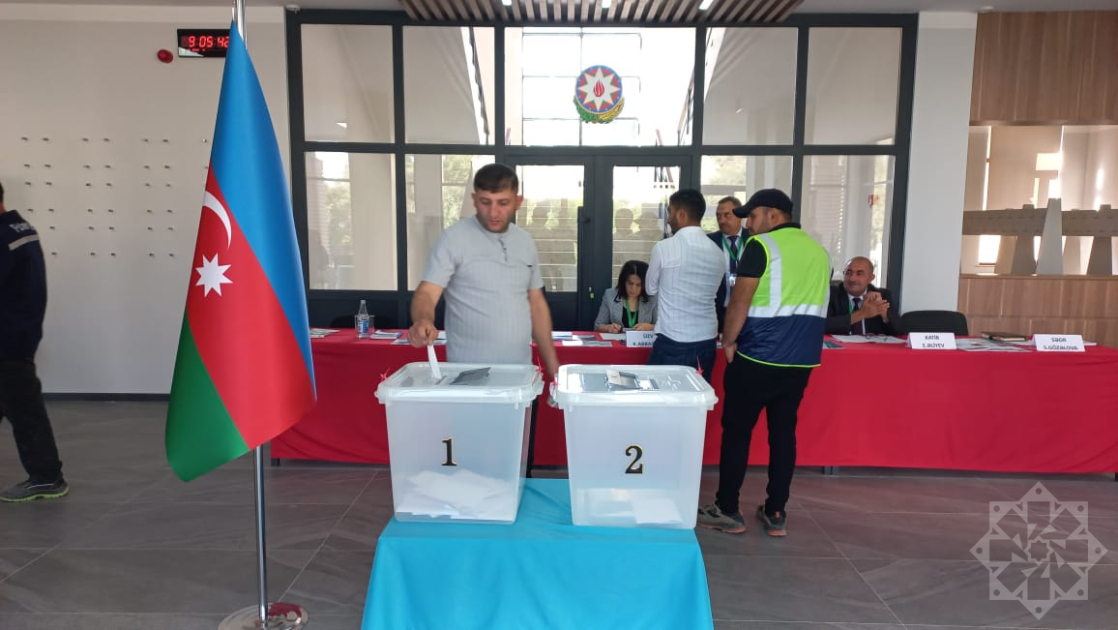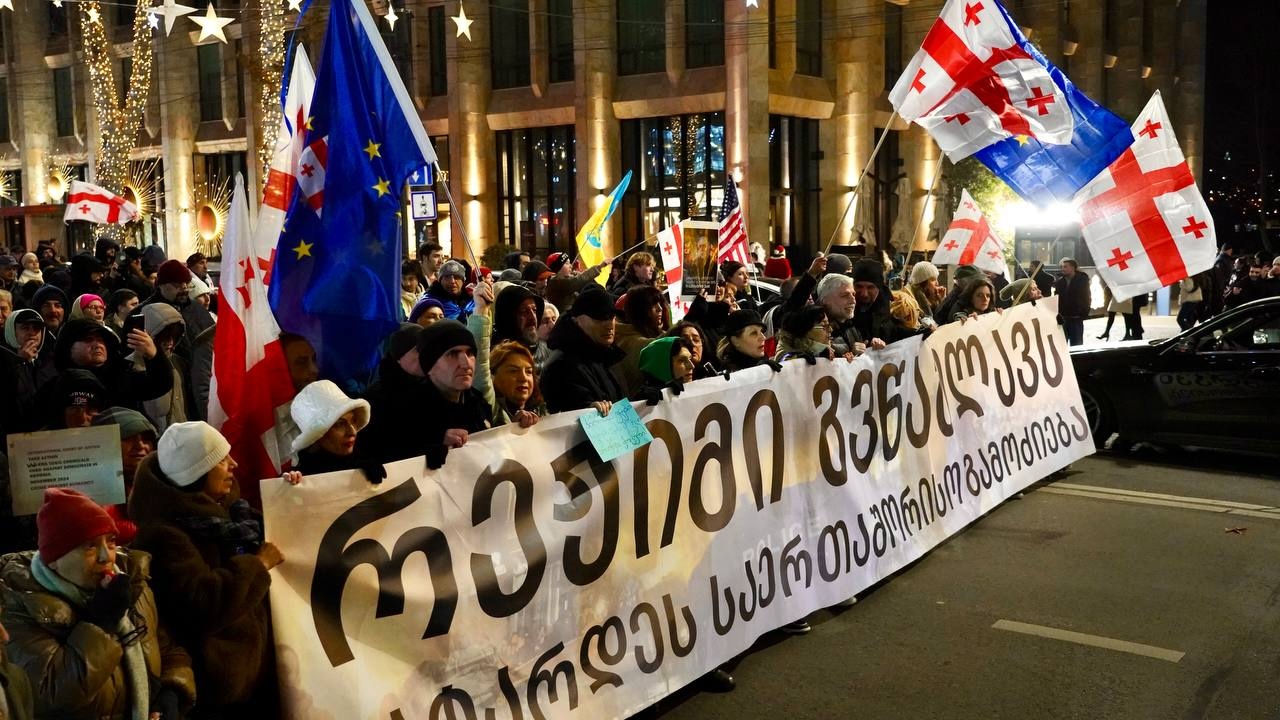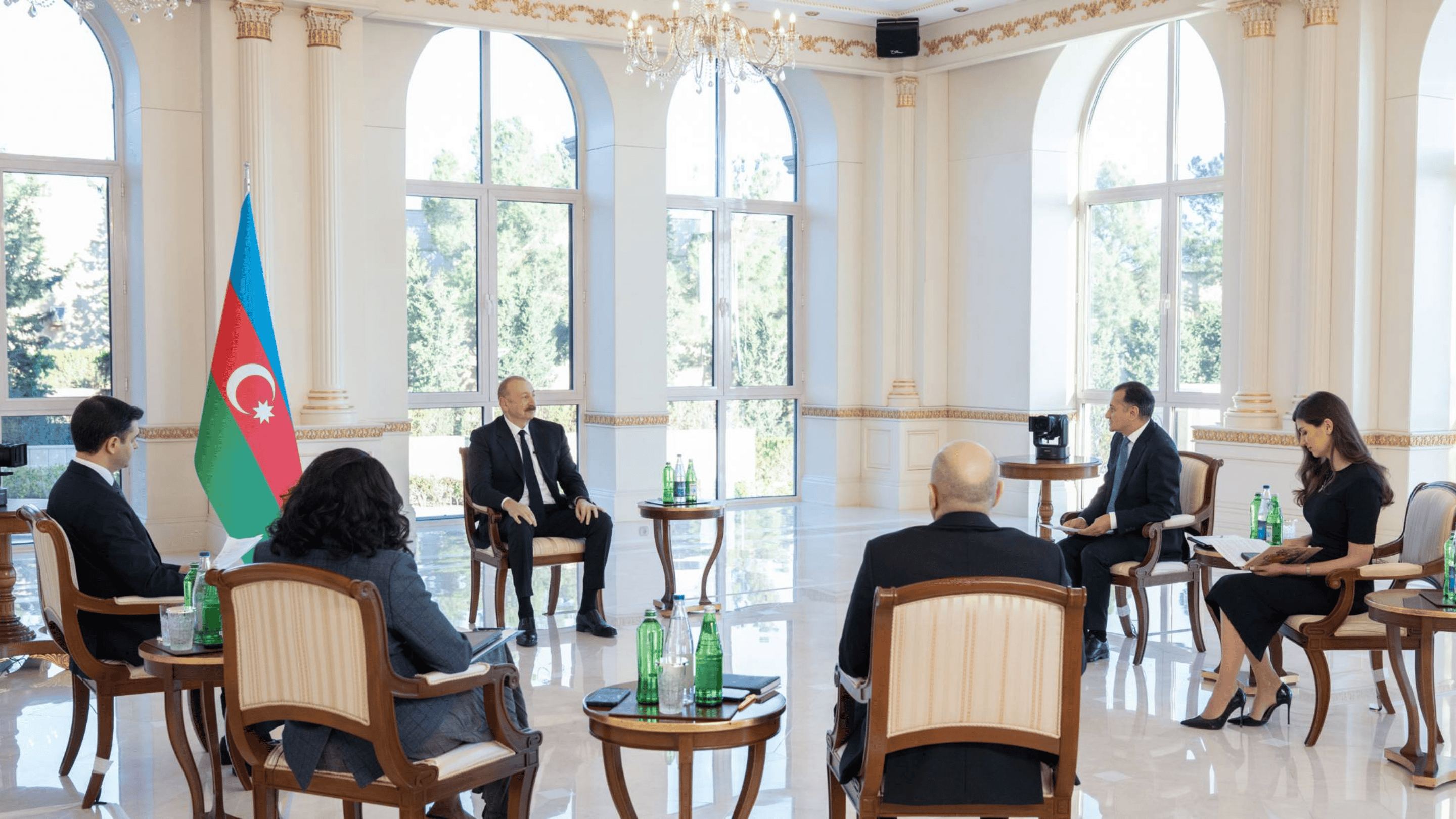Ruling party dominates Azerbaijani Parliament again
Results of Azerbaijan’s parliamentary elections
Preliminary results from the snap parliamentary elections held in Azerbaijan on September 1 have been announced.
The ruling party of president Ilham Aliyev, the New Azerbaijan Party (YAP), has maintained its absolute majority in the Milli Majlis, securing 68 seats. Independent candidates, most of whom are known to be pro-government, will hold 44 seats.
The Civil Solidarity Party will have three deputies, the Justice, Rights, and Democracy Party will have two, and one seat each will go to the Republican Alternative Party, the National Independence Party, the Democratic Reform Party, the Homeland Party, the Great Creation Party, the Great Azerbaijan Party, the National Front Party, and the Azerbaijan Party of Democratic Enlightenment.
Central Election Commission head Mazahir Panahov reported that voter turnout was just 37.27%, the lowest ever for parliamentary elections in the country’s independent history.
The final results of the snap parliamentary elections will be announced by September 22.
Musavat party: “Elections took place in an undemocratic environment”
The opposition Musavat Party, which fielded 25 candidates in the elections, did not secure any seats in the parliament. The party’s central election headquarters stated that the elections were conducted without a democratic environment conducive to free and fair political competition, with unequal opportunities for all political forces, restrictions on freedom of speech, media, expression, and assembly, as well as pressure and repression against journalists, political activists, and government critics on social media.
“Voter turnout was extremely low. At some polling stations, there were no voters for hours.
The voting was marked by widespread violations, including multiple votes by the same individuals and groups, ballot stuffing, and pressure on observers.
These violations were documented, and videos have been circulated online.”
The opposition Musavat Party, which ran 25 candidates in the elections, failed to secure any parliamentary seats. The party’s central election headquarters claimed that the elections were conducted without a democratic environment necessary for free and fair political competition. They cited unequal opportunities for political forces, restrictions on freedom of speech, media, expression, and assembly, as well as pressure and repression against journalists, political activists, and social media critics.
“The continuity of the electoral process was disrupted at most polling stations where Musavat candidates were present, and vote counting was not conducted immediately after the end of voting.
Preliminary results were announced based on top-down data.
Given these issues, Musavat declares that the September 1 snap elections for the Milli Majlis were neither free nor fair,” the party stated.
The document also says that the elections did not meet international standards or Azerbaijan’s obligations to international organizations it participates in:
“The party does not consider the Milli Majlis, formed based on these non-free, non-fair, and undemocratic elections that do not reflect the will of the people, to be a legitimate legislative body.
Musavat demands the annulment of the elections, the implementation of reforms, including electoral reforms, to build a rule-of-law state and democratic society, and the holding of new parliamentary elections.”
Natig Jafarli: “Even administrative resources couldn’t boost turnout above 37%”
Another opposition party, the Republican Alternative (ReAl), secured one seat in parliament. The sole representative from the party is board member Erkin Gadirli, who was re-elected for a second term.
In the 2020 parliamentary elections, ReAl ran with 29 candidates. This time, the party had 12 candidates.
One of ReAl’s leaders and a candidate for parliament, Natig Jafarli, believes that “every successive election in Azerbaijan is worse than the previous one.”
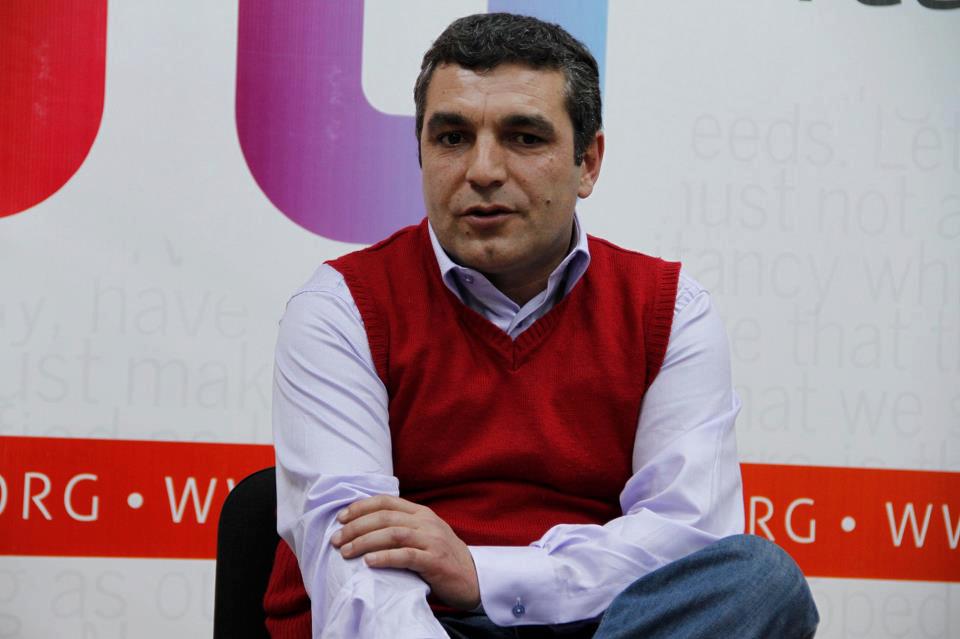
Natig Jafarli: “Administrative resources insufficient for clear victory”
“We again witnessed an electoral process with numerous violations. But I want to offer a slightly different perspective. These elections have once again shown that the Azerbaijani government’s administrative resources are insufficient for achieving a clear and confident victory.
Voter turnout was only 37 percent. They couldn’t even reach 40 percent. This should be a wake-up call for the Azerbaijani authorities. They need to understand that despite all their resources, including ballot stuffing and ‘carousel voting,’ achieving only a 37-percent turnout is a tragedy for the country’s future,” he said.
Jafarli believes that deepening mistrust in the electoral system creates conditions for the emergence of “non-electoral processes” in the future.
“After a while, controlling these processes through force will no longer be possible. This election also demonstrated that there is significant public discontent related to social, economic, and corruption issues. Elections are the civil expression of this discontent. Each time elections are held at such a disgraceful level, public trust in the electoral system is eroded. This poses a threat to the future of the Azerbaijani state.”
PFPA: “Elections held under conditions of restricted rights and freedoms”
One of the main opposition parties in the country, the Azerbaijan Popular Front Party (PFPA), boycotted the elections, citing the government’s refusal to ensure fair and equal conditions for all candidates.
The party has not participated in any elections since 2015.
Following the elections, the party declared that it does not recognize the legitimacy of the election results, stating that “these ‘elections’ were held under conditions where basic rights and freedoms were denied to citizens, real opposition and the people boycotted them, and there was no competition.”
“We proposed creating the most basic conditions, such as freeing over 300 political prisoners in the country, respecting freedom of assembly, allowing opposition representation in election commissions, and providing opportunities for independent organizations and opposition to observe the elections. However, these proposals were ignored,” the party’s statement read.
Simple arithmetic: 1100 votes from 45 ballot boxes + 3093 votes from 4 ballot boxes
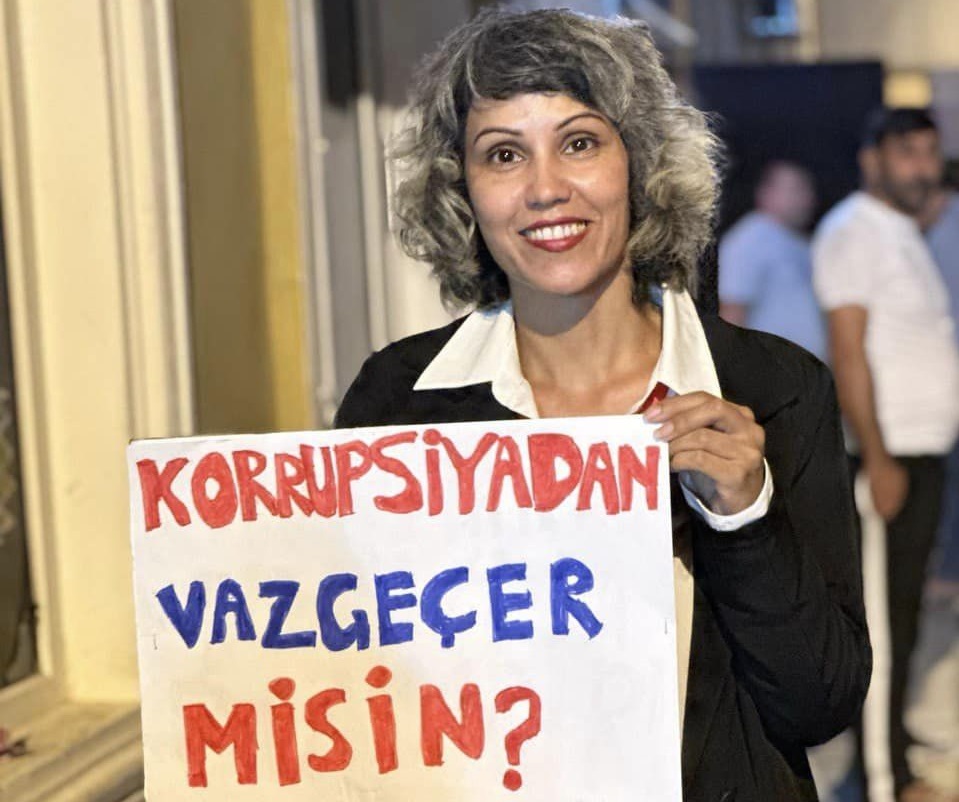
Independent candidate Vafa Nagiyeva alleges fraud
Independent candidate Vafa Nagiyeva from the Neftchala District, a well-known gender activist, has also reported election fraud. She claimed that according to the count from 45 ballot boxes, she led with over 3,000 votes, while her opponent, Tanzila Rustamkhanly from the Civil Solidarity Party, received only 1,100 votes:
“From the remaining four ballot boxes for Tanzila Rustamkhanly, 3,093 votes were added. The CEC results show Tanzila Rustamkhanly with 5,707 votes and Vafa Nagiyeva with 3,029 votes.”
Happy observers
Over 600 international observers, including the OSCE monitoring mission and observers from CIS countries, along with more than 100,000 local observers, monitored the elections.
“Parliamentary elections were organized for the first time across the entire territory of the Republic of Azerbaijan in accordance with all international principles,” said Andrey Yatskin, a representative of the Inter-Parliamentary Assembly of the CIS, at a press conference.
“We observed that polling stations opened on time, and an exit poll was conducted at one station. Our observations indicate that Azerbaijan’s electoral legislation ensured a transparent election process,” he stated.
The Shanghai Cooperation Organization (SCO) monitoring mission also observed the snap parliamentary elections held on September 1 in Azerbaijan.
“The Azerbaijani government’s goal in inviting international observers was to conduct the snap parliamentary elections openly and transparently. Our mission consisted of 16 people and representatives of the organization. All conditions for free observation were also provided for journalists. This creates a basis for democratic and transparent elections. I would add that the elections were conducted very calmly and smoothly, in accordance with democratic principles,” said Nuran Niyazaliev, Deputy Secretary-General of the SCO.
“We visited 36 polling stations yesterday and did not record any interference. Conditions for exercising the right to vote were created for everyone,” said Omer Kojaman, Deputy Secretary-General of the Organization of Turkic States (OTS) and head of the monitoring mission.
Italian Deputy Naike Grupiuni, who observed the elections, noted that “the participation of youth and women in the electoral process shows that Azerbaijan provides extensive opportunities for this.”
OSCE Mission questions Azerbaijan’s election results
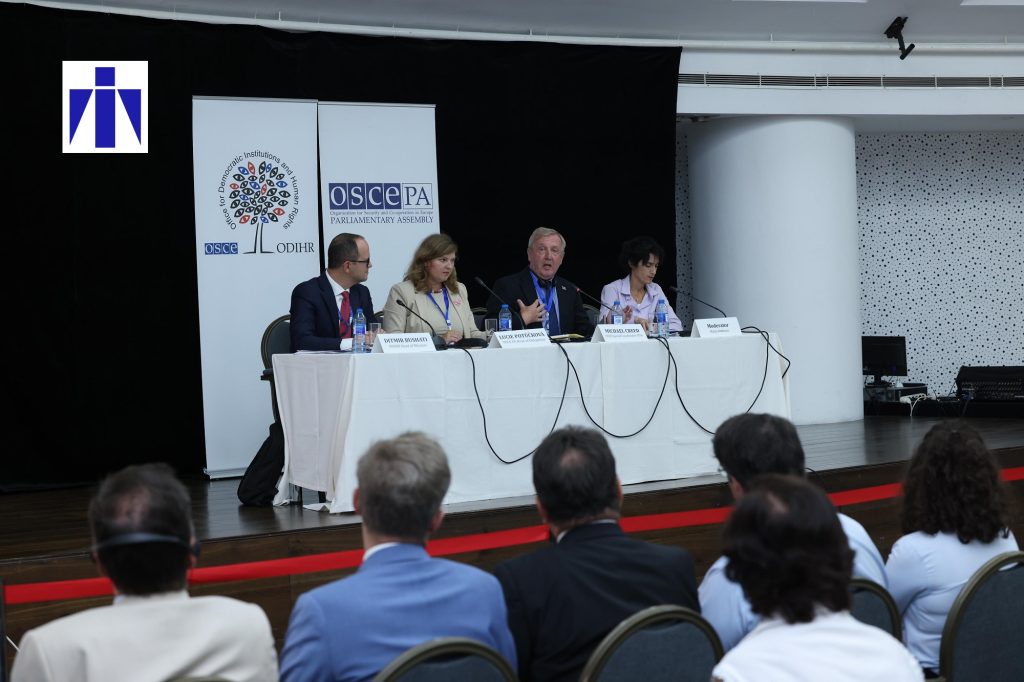
The early parliamentary elections in Azerbaijan, held on September 1, did not offer voters political alternatives and were conducted under excessive restrictions on fundamental freedoms and the media. This was stated in a joint declaration by international observers from the OSCE/ODIHR and the OSCE PA.
The document highlighted that Azerbaijan’s electoral legislation remained largely unchanged since the last parliamentary elections, without addressing prior recommendations. The candidate registration process was marred by excessive demands, inconsistent procedures, and withdrawals due to intimidation. New requirements for political parties further restricted their ability to register.
“These elections took place in a restrictive political and legal environment, lacking political pluralism, which undermined the electoral process,” said Michael Creed, the OSCE coordinator and head of short-term observers.
Creed also noted that the dominance of ruling party members in electoral commissions and the restrictions on independent local observers contradicted the principles of transparency essential for democratic elections.
Although the election preparation was efficient, and there was a widespread voter information campaign, the election administration was effectively controlled by the ruling party, casting doubt on its impartiality.
Observers assessed the opening and voting processes as organized but identified significant violations of important procedures, particularly during vote counting.
The election campaign was barely visible, even online. Observers reported cases where public sector employees and others were coerced into attending campaign events, raising concerns about voter intimidation and their ability to vote freely.
The report also pointed to a rise in arrests and detentions of journalists and civil society activists, combined with a restrictive legal framework for the media, leading to widespread self-censorship and severely limiting opportunities for independent journalism. Political debate was further stifled by the authorities’ intent to control the internet and social media.
The international election observation mission for Azerbaijan’s early parliamentary elections consisted of 279 observers from 34 countries, including 225 experts sent by OSCE/ODIHR and 54 observers from the OSCE PA.










